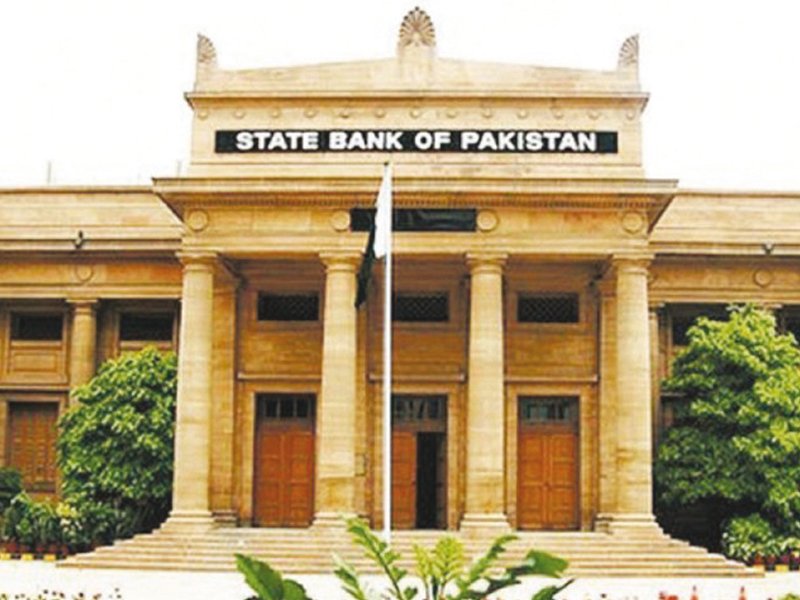
The apex court declared Section 15 of the Financial Institutions (Recovery of Finance) Ordinance 2001 – which empowered financial institutions to sell mortgaged property without recourse to court – “ultra vires” to the constitution last month.
The decision received accolades in the media because the provision was apparently tilted in favour of the lender.
It is up to the lawyers to discuss the merits and demerits of the ordinance and the recent Supreme Court decision that struck down its most prominent provision. However, there may be concerns about a kneejerk reaction to every judicial action that appears to favour ordinary people, without taking into account the other side of the picture.
It is well-known that courts function at a painfully slow pace in Pakistan. Cases, especially those related to property, take years to resolve. Punishing institutional lenders, which exist as for-profit corporate entities, for the ineffectiveness of state institutions does not constitute economic policy.
Firstly, Pakistan was not the only country to allow foreclosures by power of sale, also known as non-judicial foreclosures. Allowing non-judicial foreclosure means the mortgage deed carries the power-of-sale provision, thus enabling the mortgage holder to sell the property in case of a default without court supervision.
Secondly, the idea of institutional lenders – which are regulated by the ever-vigilant State Bank of Pakistan (SBP) – preying on unsuspecting borrowers seems fanciful given the poor record of enforcing contracts in Pakistan. The country ranks miserably low at the 158th position in 189 economies of the world in the category of enforcing contracts, according to the World Bank’s 2014 Ease of Doing Business report.
It costs on average 23.8% of the value of the actual claim in case a party goes to court to get a legally-bound contract enforced. The trial and judgment stage alone takes 580 days on average while the enforcement of judgment takes another 300. In total, it takes more than two-and-a-half years from the moment the plaintiff decides to file the lawsuit until he receives final payment, according to the report.
Once I asked the deputy CEO of a mid-sized bank to state the primary reason for banks’ lack of interest in housing finance. He responded by saying that weak foreclosure laws have driven banks away from the housing segment in the last decade or so.
Similarly, Association of Builders and Developers of Pakistan (ABAD) Senior Vice Chairman Saleem Kassim Patel is of the view that foreclosure laws should be made stricter, encouraging banks to increase their involvement in housing finance.
Although the clause regarding financial institutions’ right to foreclose a mortgaged property without recourse to court in the case of a default had existed in the ordinance since its promulgation, it remained practically ineffective because of a years-long stay order against its implementation.
But instead of resolving the issue in a way that is acceptable to all stakeholders, the law has now been rendered toothless with the surgical removal of its most important clause.
This is going to create further decline in the amount of gross outstanding housing finance in the country, which was Rs52.2 billion at the end of fiscal year 2012-13 as opposed to Rs57.1 billion a year ago, a decrease of 8.5%.
No wonder Pakistan’s formal financial sector caters to less than 2% of all housing transactions in the country, with the mortgage-to-gross domestic product (GDP) ratio of 0.6%, according to SBP data.
Other than the housing finance segment, weakness in mortgage laws is also affecting credit availability for private businesses. The president of an up-and-coming commercial bank recently said that his institution does not extend even short-term loans/working capital loans to the private sector except against either a pledge of commodities or a mortgage on property. Furthermore, he added the bank’s policy allows for mortgaged properties to be located in upscale localities only, such as Clifton and DHA, in order to ensure protection against default.
It is no surprise, thus, Pakistan ranks 73rd in the World Bank’s Ease of Doing Business report when it comes to getting credit. Banks wouldn’t have to be too conservative in this regard had the country’s foreclosure laws been strong and effective.
Published in The Express Tribune, January 20th, 2014.
Like Business on Facebook, follow @TribuneBiz on Twitter to stay informed and join in the conversation.
COMMENTS (8)
Comments are moderated and generally will be posted if they are on-topic and not abusive.
For more information, please see our Comments FAQ


1731570357-0/elon-musk-(1)1731570357-0-165x106.webp)
-(1)1717678110-0/Kendrick-(1)-(1)1717678110-0-165x106.webp)













@ddddd - I have collateral in nigeria and authentic pk docs :) Now where's my loan
The reason mortgage financing couldn't gain momentum is also, the prohibitive rates on mortgage financing. 15-16% is way to high. By that rate, if you take a three million mortgage repayable in ten years time at a rate of sixteen percent, total monthly payments works out at Rs. 50,253. (And you pay 3,000,000 principal and 3,030,000 interest in that period). Mortgage financing has good future if, bank's lend vis-a-vis their cost of funds instead of interbank bench-marking.
P2P lending is going to make banks obsolete soon. Let them have their way while it lasts. Power will flow back to the people soon enough.